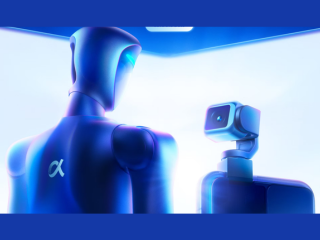Slack Opens Platform for Developers to Build AI Apps and Agents on Its Data
To provide secure and flexible access to Slack’s conversational data, it is offering a real-time search API and MCP server.

Photo Credit: Slack
Slack is also letting enterprises build internal AI agents using the same system
Slack, on Thursday, announced the expansion of the platform to let developers build artificial intelligence (AI) tools and agentic workflows based on its conversational data. The system is based on a real-time search (RTS) application programming interface (API), a dedicated Model Context Protocol (MCP) server, and developer-focused tools such as Block Kit Tables. With this, the enterprise-focused communication and collaboration platform will let third-party developers and even enterprises build secure and context-aware AI apps and agents that can access the platform's chat data to automate tasks.
Slack to Let Developers Access Its Data for AI Apps and Agents
Traditionally, AI assistants in workplace tools have struggled because they lacked context. From chat histories, thread details, to task-based nuances remain fragmented behind data silos. Slack, in a press release, stated that it aims to break those barriers by letting third-party AI app and agent developers access its conversational data.
The way Slack wants to do it involves an RTS API and Anthropic's MCP-based server. The API gives real-time access to conversational data of the platform that includes current discussions, files, and channels. The company says it has focused on security by only letting AI agents interact with the data, but not letting them bulk download it or store it elsewhere. Additionally, businesses can dictate access permissions.
On the other hand, the MCP server standardises how LLMs, AI apps, and agents discover contextual information and execute tasks on behalf of Slack users. It offers a unified communication layer between the LLm and Slack to connect to data sources and tools. This saves developers the hassle of manually defining each task an agent can perform.
Slack said that several companies have already begun integrating this offering. For instance, Anthropic's Claude can now search across Slack channels, threads and files to ground responses in work-related conversations. Similarly, Google's Agentspace integration connects Slack data with its AI agents. Perplexity, Writer, Dropbox, Notion, Cognition Labs, Vercel, and Cursor have also started adopting the integration.
The new capabilities are currently in closed beta, with full general availability expected in early 2026. Slack Work Objects, a feature that will help embed third-party data directly into conversations, will roll out more broadly by late October.
Get your daily dose of tech news, reviews, and insights, in under 80 characters on Gadgets 360 Turbo. Connect with fellow tech lovers on our Forum. Follow us on X, Facebook, WhatsApp, Threads and Google News for instant updates. Catch all the action on our YouTube channel.
Related Stories
- Samsung Galaxy Unpacked 2026
- iPhone 17 Pro Max
- ChatGPT
- iOS 26
- Laptop Under 50000
- Smartwatch Under 10000
- Apple Vision Pro
- Oneplus 12
- OnePlus Nord CE 3 Lite 5G
- iPhone 13
- Xiaomi 14 Pro
- Oppo Find N3
- Tecno Spark Go (2023)
- Realme V30
- Best Phones Under 25000
- Samsung Galaxy S24 Series
- Cryptocurrency
- iQoo 12
- Samsung Galaxy S24 Ultra
- Giottus
- Samsung Galaxy Z Flip 5
- Apple 'Scary Fast'
- Housefull 5
- GoPro Hero 12 Black Review
- Invincible Season 2
- JioGlass
- HD Ready TV
- Latest Mobile Phones
- Compare Phones
- Realme P4 Lite
- Vivo V70
- Vivo V70 Elite
- Google Pixel 10a
- Tecno Camon 50
- Tecno Camon 50 Pro
- Lava Bold N2
- Vivo V60 Lite 4G
- LG Gram 14 (2026)
- Asus Vivobook 16 (M1605NAQ)
- Infinix Xpad 30E
- Brave Ark 2-in-1
- Amazfit T-Rex Ultra 2
- boAt Chrome Iris
- Xiaomi QLED TV X Pro 75
- Haier H5E Series
- Asus ROG Ally
- Nintendo Switch Lite
- Haier 1.6 Ton 5 Star Inverter Split AC (HSU19G-MZAID5BN-INV)
- Haier 1.6 Ton 5 Star Inverter Split AC (HSU19G-MZAIM5BN-INV)

















